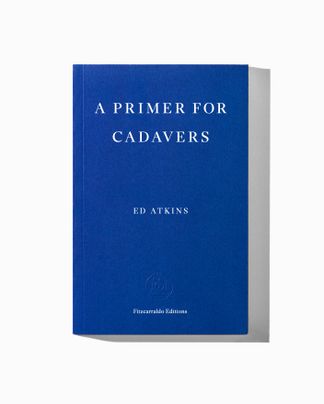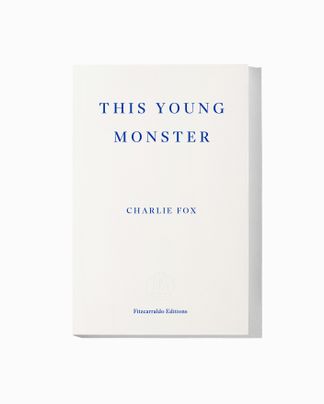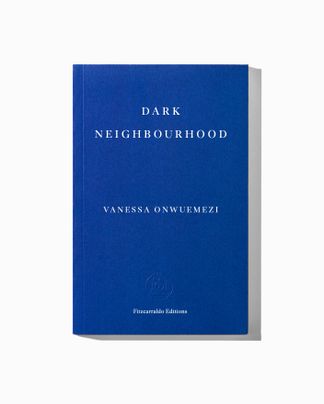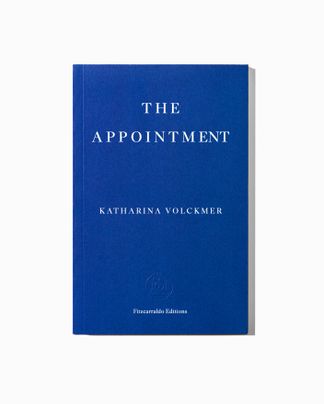From one of the most lauded artists of his generation comes a purging soliloquy: a profound nowt delivered in some spent afterwards. Scorched by senility and nostalgia, and wracked by all kinds of hunger, Ed Atkins’ Old Food lurches from allegory to listicle, from lyric to menu, fetching up a plummeting, idiomatic and crabbed tableau from the cannibalised remains of each form in turn. Written in conjunction with Atkins’ exhibition of the same name, Old Food is a hard Brexit, wadded with historicity, melancholy and a bravura kind of stupidity.
Ed Atkins is an artist who makes all kinds of convolutions of self-portraiture. He writes uncomfortably intimate, debunked prophesies; paints travesties; and makes realistic computer generated videos that often feature figures that resemble the artist in the throes of unaccountable psychical crises. Atkins’ artificial realism, whether written or animated, pastiches romanticism to get rendered down to a sentimental blubber – all the better to model those bleak feelings often so inexpressible in real life.
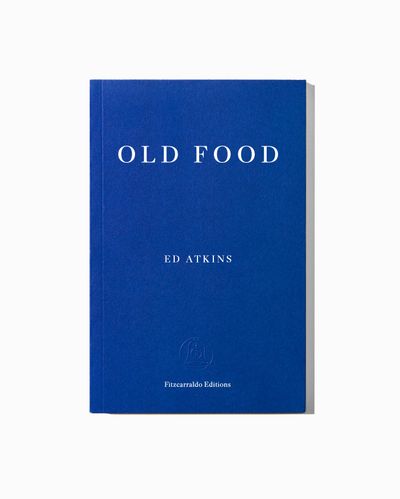
Old Food
French paperback with flaps, 120 pages
Published 28 November 2019
Old Food
PERFORMER
Spring finds medium son just on the floor. Looks maybe six? evil, holds the red plastic-handled table knife in a small right fist, fishes a slice from the open bag of bad bread with a left.
Crumb-stuck margarine blouses with the draw of the knife’s few dull serrations. Excess margarine skimmed against the rim of the tub. Margarine also stuck in a different manner to the underside of the blue foil peel, also. There is no margarine at all on the lid of the tub that rests against one um grey sock, looking perfect, plastic, the lid. Margarine also dark marls grey sock. Grey sock’s cuff ’s elastic unambiguously resigned, wilting round the blub edge of a pair of nice slippers. Untucked beige polyester short-sleeve also with margarine fat seep tabbing, also. Lax brown cords’ shot waistband frayed low. Slight merry muffin-top mini debouch? An ease of flesh into the room.
Lighting is palpably dawning. Motes and amber digits depend on young blue air. All the visible skin would shone with marge fat and the floor is a ghastly rink with it in the corner a whole family, their horse and worse.
*
What’s at stake with the sandwich?, to a crush of neighbours jostling for gratis crackling.
Allegories used to be clear and dogmatic as baby’s beer. Foaming teats sopped in The People’s bra.
Later, eating just stopped. Snails caulked black treacle, then. Then wigged cassoulet and an humming hard cheese wheel spoke thermal death-time. Sorry year’s Harvest Festival focussed a depleted congregation’s prosy grace of canned misc. and dry goods for an lull for
example we’d prayer pack and tape small boxes of unknown pulses, Birds powder, powdered eggs, UHT, mulligatawny cans for maybe orphans who’d we’d prayed about inside of their distant orphan fast, woolgathering, we’d pray our blind frippery as a romance of sorts an unrequited cursorial, even as we too had nothing to eat even at all. Was the last of it, frittered.
In March we’d spoon molten bootblack over its head and beat the poor collie with an idea of tuck and fuck and a steel ladle. Later we’d see um them in the distance on a podium speaking with candour, really very moving. In winter we’d dress as low ranking public servants we’d leverage our status to hawk greengages and whiskered courgettes and the twee pickney gooseberries smote all pressed on humid slices of
Soreen
with mustered portent and really cool local slurs at a stall near the main prison or thereabouts. Our banner read ‘Old Food’ and could be read um from solitary. Out loud we also had a big bell we’d’ve rang.
(…)
A performative reading of Old Food by Ed Atkins is available to listen to by clicking on this link. Recorded at the theatre of Museum of Contemporary Art Kiasma in Helsinki on 29 February 2020, with songs throughout. Thanks to Sanni Pajula, Patrik Nyberg, Sonya Merutka and all at Kiasma. Courtesy Ed Atkins and Fitzcarraldo Editions. Copyright © Ed Atkins, 2019 and 2020.
‘Violent, emetic, immoderate, improper, impure – that’s to say it’s the real thing. Atkins’s prose, which may not be prose, adheres to Aragon’s maxim “Don’t think – write.”’
— Jonathan Meades
‘Atkins, reflecting on the absence of humans in the exhibition, here favours the visceral impact of associated images and words, pumping the poetry-prose with lines that speak of our primeval instincts, needs and desires, in order to “seek empathic commons”.’
— ArtReview
‘Ed Atkins is the artist of ugly feelings – gruesome and smeared and depleted. But everything he does in his videos or paintings, I’ve always thought, he really does as a writer. He uses language as a system where everything gets reprocessed and misshapen – a unique and constant mislaying of tone that’s as dizzying as it’s exhilarating.’
— Adam Thirlwell, author of Lurid & Cute
‘The universe is a rabble of contagion and miasma. The universe is a rabble of spheres, moved by mystical forces. Ed Atkins pokes this condition. He strokes and bursts it. He is the barber who doubles as doctor and a dentist, quick with his knife and flushes of blood. No page of Old Food is dry, it seeps with life, it breathes, bleeds, engorges, sticks you together with spit. Like bacterial cells on an errant loaf, Old Food is language in growth. ’
— Helen Marten, 2016 Turner Prize winner
‘Whether Old Food is poetry, dystopian fiction, script for an exhibition, metabolic literature or all and other, is up for discussion. What is not is the artist-writer’s limpid poetics, carnal and hungry as the wolf. Atkins’s writing is real and a relief. And if grammar is politics by other means, per Haraway, then so is food – as trope, as lack, as romp, as sustenance.’
— Quinn Latimer, author of Like a Woman
‘Like a McDonald’s hamburger or a cockroach or the Global Seed Vault, Old Food perseveres beyond mortal reason and enters a Beckettian afterwards. We cannot know the reason for all those tears, and it scarcely matters.’
— Vivian Rycroft
‘Old Food will eat you up. Ed the head plays a vampire chorus singing of rotten old England, a magic wasteland which comes stuffed with a Supermarket Sweep of sinister flesh, goo, and other putrid treats. What’s that growing in the kitchen sink? Stick the kettle on, love, and feel the sickness descend.’
— Charlie Fox, author of This Young Monster
‘T.S. Eliot’s definition of English culture ran right down to ‘boiled cabbage cut into sections’. Ed Atkins scrapes in Cathedral City, battered calamari, excess margarine, peach cobbler, robin heart, Wotsits, mum, dad – and puts it all on a rotary spit of enjambing sentences. His turns of phrase are exceedingly toothsome: ‘buttered, asteroidal crumpets’, ‘the lush, truffled / belch of Superunleaded’, ‘a crush of / neighbours jostling for gratis / crackling’. A post-apocalypse filmed on location in the colon of this country, every moreish page of Old Food is disgusting as a gastropub, the mince of a language going richly off.’
— Jeremy Noel-Tod, editor of The Penguin Book of the Prose Poem
‘Reading like the accelerated brain patterns of a ravenous soothsayer-cum-scavenger-cum-time-travellingsalesperson, auto-translated into an almost recognizable diction, Old Food tastes of sick period drama, nostalgic for a time just around the corner. As singular as electrocution, it emits from the demented ditches, the euphoric crusts, disappointed hearts and bad gut-feelings as much as the patterned constellations, throbbing with multidimensional love-songs. From inside these erotic and squalid operatics, Ed Atkins revamps the scene of our selves. His writing advances like a daredevil knife-thrower, nervy and elastic, spinning words at the reader’s throat.’
— Heather Phillipson, author of Whip-hot & Grippy
‘If “Chocolate coins seemed doubly cryptic with the collapse of banks…” as Ed Atkins writes towards the end of this almost unbearable but compelling work, then dystopia and climate catastrophe are in our mouths and bodies: they pour through cataracts of names of herbs and meats and slime, of commonplace gestures in strange locations, they disrupt spelling and produce unnatural words and the suspension of proper grammar. Atkins’ fiercely flowing anti-poetry takes up the disruption of unthinking indulgence at a point near to where Theodor Adorno left off, moralia now definitively below the minima we need to carry on – other than in the turbulence of the text.’
— Adrian Rifkin, author of Communards
‘A poetic bleak comedy, in which all flesh is carrion and dinner is served, and I can’t help but admire it for its sheer insanity.’
— The London Magazine
‘It’s credit to Atkins’ talent as an artist that he can move between visual art and prose poetry without seeming to lose his bite.’
— SPAM

